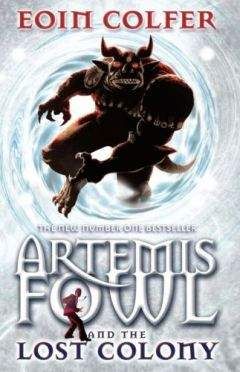W. Ainsworth - Rookwood
"Indeed!" exclaimed Jack; "and who was it?"
"A fellow known by the name of Luke Bradley."
"Zounds!" cried Titus; "you don't say it was he? Murder in Irish! that bates everything; why, he was Sir Piers's—"
"Natural son," replied the attorney; "he has not been heard of for some time—shockingly incorrigible rascal—impossible to do anything with him."
"You don't say so," observed Jack. "I've heard Sir Piers speak of the lad; and, by his account, he's as fine a fellow as ever crossed tit's back; only a little wildish and unreasonable, as the best of us may be; wants breaking, that's all. Your skittish colt makes the best horse, and so would he. To speak the truth, I'm glad he escaped."
"So am I," rejoined Titus; "for, in the first place, I've a foolish partiality for poachers, and am sorry when any of 'em come to hurt; and, in the second, I'd be mightily displeased if any ill had happened to one of Sir Piers's flesh and blood, as this young chap appears to be."
"Appears to be!" repeated Palmer; "there's no appearing in the case, I take it. This Bradley's an undoubted offshoot of the old squire. His mother was a servant-maid at the hall, I rather think. You, sir," continued he, addressing Coates, "perhaps can inform us of the real facts of the case."
"She was something better than a servant," replied the attorney, with a slight cough and a knowing wink. "I remember her quite well, though I was but a boy then; a lovely creature, and so taking, I don't wonder that Sir Piers was smitten with her. He was mad after the women in those days, and pretty Sue Bradley above all others. She lived with him quite like his lady."
"So I've heard," returned Jack; "and she remained with him till her death. Let me see, wasn't there something rather odd in the way in which she died, rather suddenish and unexpected—a noise made about it at the time, eh?"
"Not that I ever heard," replied Coates, shaking his head, and appearing to be afflicted with an instantaneous ignorance; while Titus affected not to hear the remark, but occupied himself with his wine-glass. Small snored audibly. "I was too young, then, to pay any attention to idle rumours," continued Coates. "It's a long time ago. May I ask the reason of your enquiry?"
"Nothing further than simple curiosity," replied Jack, enjoying the consternation of his companions. "It is, as you say, a long while since. But it's singular how those sort of things are remembered. One would think people had something else to do than talk of one's private affairs for ever. For my part, I despise such tattle. But there are persons in the neighbourhood who still say it was an awkward business. Amongst others, I've heard that this very Luke Bradley talks in pretty plain terms about it."
"Does he, indeed?" said Coates. "So much the worse for him. Let me once lay hands upon him, and I'll put a gag in his mouth that shall spoil his talking in future."
"That's precisely the point I desire to arrive at," replied Jack; "and I advise you by all means to accomplish that, for the sake of the family. Nobody likes his friends to be talked about. So I'd settle the matter amicably, were I you. Just let the fellow go his way, he won't return here again in a hurry, I'll be bound. As to clapping him in quod, he might prattle—turn stag."
"Turn stag!" replied Coates, "what the deuce is that? In my opinion he has 'turned stag' already. At all events, he'll pay deer for his night's sport, you may depend upon it. What signifies it what he says? Let me lay hands upon him, that's all."
"Well, well," said Jack, "no offence. I only meant to offer a suggestion. I thought the family, young Sir Ranulph, I mean, mightn't like the story to be revived. As to Lady Rookwood, she don't, I suppose, care much about idle reports. Indeed, if I've been rightly informed, she bears this youngster no particular good-will to begin with, and has tried hard to get him out of the country. But, as you say, what does it signify what he says, he can only talk. Sir Piers is dead and gone."
"Humph!" muttered Coates, peevishly.
"But it does seem a little hard, that a lad should swing for killing a bit of venison in his own father's park."
"Which he'd a nat'ral right to do," cried Titus.
"He had no natural right to bruise, violently assault, and endanger the life of his father's, or anybody else's, gamekeeper," retorted Coates. "I tell you, sir, he's committed a capital offence, and if he's taken—"
"No chance of that, I hope," interrupted Jack.
"That's a wish I can't help wishing myself," said Titus: "on my conscience, these poachers are fine boys, when all's said and done."
"The finest of all boys," exclaimed Jack, with a kindred enthusiasm, "are those birds of the night, and minions of the moon, whom we call, most unjustly, poachers. They are, after all, only professional sportsmen, making a business of what we make a pleasure; a nightly pursuit of what is to us a daily relaxation; there's the main distinction. As to the rest, it's all in idea; they merely thin an overstocked park, as you would reduce a plethoric patient, doctor; or as you would work a moneyed client, if you got him into Chancery, Mister Attorney. And then how much more scientifically and systematically they set to work than we amateurs do; how noiselessly they bag a hare, smoke a pheasant, or knock a buck down with an air-gun; how independent are they of any licence, except that of a good eye, and a swift pair of legs; how unnecessary is it for them to ask permission to shoot over Mr. So-and-So's grounds, or my Lord That's preserves; they are free of every cover, and indifferent to any alteration in the game laws. I've some thoughts, when everything else fails, of taking to poaching myself. In my opinion, a poacher's a highly respectable character. What say you, Mr. Coates?" turning very gravely to that gentleman.
"Such a question, sir," replied Coates, bridling up, "scarcely deserves a serious answer. I make no doubt you will next maintain that a highwayman is a gentleman."
"Most undoubtedly," replied Palmer, in the same grave tone, which might have passed for banter, had Jack ever bantered. "I'll maintain and prove it. I don't see how he can be otherwise. It is as necessary for a man to be a gentleman before he can turn highwayman, as it is for a doctor to have his diploma, or an attorney his certificate. Some of the finest gentlemen of their day, as Captains Lovelace, Hind, Hannum, and Dudley, were eminent on the road, and they set the fashion. Ever since their day a real highwayman would consider himself disgraced, if he did not conduct himself in every way like a gentleman. Of course, there are pretenders in this line, as in everything else. But these are only exceptions, and prove the rule.
"What are the distinguishing characteristics of a fine gentleman?—perfect knowledge of the world—perfect independence of character—notoriety—command of cash—and inordinate success with the women. You grant all these premises. First, then, it is part of a highwayman's business to be thoroughly acquainted with the world. He is the easiest and pleasantest fellow going. There is Tom King, for example: he is the handsomest man about town, and the best-bred fellow on the road. Then whose inclinations are so uncontrolled as the highwayman's, so long as the mopuses last? who produces so great an effect by so few words?—'Stand and deliver,' is sure to arrest attention. Everyone is captivated by an address so taking. As to money, he wins a purge of a hundred guineas as easily as you would the same sum from a faro table. And wherein lies the difference? only in the name of the game. Who so little need of a banker as he? all he has to apprehend is a check—all he has to draw is a trigger. As to the women, they dote upon him: not even your redcoat is so successful. Look at a highwayman mounted on his flying steed, with his pistols in his holsters, and his mask upon his face. What can be a more gallant sight? the clatter of the horse's heels is like music to his ear—he is in full quest—he shouts to the fugitive horseman to stay—the other flies all the faster—what chase can be half so exciting as that? Suppose he overtakes his prey, which ten to one he will, how readily his summons to deliver is obeyed; how satisfactory is the appropriation of a lusty purse or a corpulent pocket-book—getting the brush is nothing to it. How tranquilly he departs, takes off his hat to his accommodating acquaintance, wishes him a pleasant journey, and disappears across the heath! England, sir, has reason to be proud of her highwaymen! They are peculiar to her clime, and are as much before the brigand of Italy, the contrabandist of Spain, or the cut-purse of France—as her sailors are before all the rest of the world. The day will never come, I hope, when we shall degenerate into the footpad, and lose our night errantry. Even the French borrow from us—they have only one highwayman of eminence, and he learnt and practised his art in England."
"And who was he, may I ask?" said Coates.
"Claude Du-Val," replied Jack; "and though a Frenchman, he was a deuced fine fellow in his way—quite a tip-top macaroni—he could skip and twirl like a figurant, warble like an opera singer, and play the flageolet better than any man of his day—he always carried a flute in his pocket, along with his snappers. And then his dress—it was quite beautiful to see how smartly he was rigg'd out, all velvet and lace; and even with his vizard on his face, the ladies used to cry out to see him. Then he took a purse with the air and grace of a receiver-general. All the women adored him—and that, bless their pretty faces, was the best proof of his gentility. I wish he'd not been a Mounseer. The women never mistake. They can always discover the true gentleman, and they were all of every degree, from the countess to the kitchen-maid, over head and ears in love with him."
"But he was taken, I suppose?" asked Coates.
"Ay," responded Jack, "the women were his undoing as they've been many a brave fellow's before, and will be again." Touched by which reflection, Jack became for once in his life sentimental, and sighed. "Poor Du-Val! he was seized at the Hole-in-the-Wall in Chandos Street by the bailiff of Westminster when dead drunk, his liquor having been drugged by his dells—and was shortly afterwards hanged at Tyburn."
"It was a thousand pities," said Mr. Coates, with a sneer, "that so fine a gentleman should come to so ignominious an end!"
"Quite the contrary," returned Jack. "As his biographer, Doctor Pope, properly remarks, 'Who is there worthy of the name of man, that would not prefer such a death before a mean, solitary, inglorious life?' By-the-by, Titus, as we're upon the subject, if you like I'll sing you a song about highwaymen?"
"I should like it of all things," replied Titus, who entertained a very favourable opinion of Jack's vocal powers, and was by no means an indifferent performer; "only let it be in a minor key."
Jack required no further encouragement, but, disregarding the hints and looks of Coates, sang with much unction the following ballad to a good old tune, then very popular—the merit of which "nobody can deny."
A CHAPTER OF HIGHWAYMEN
Of every rascal of every kind,
The most notorious to my mind,
Was the Cavalier Captain, gay JEMMY HIND!1
Which nobody can deny.
But the pleasantest coxcomb among them all
For lute, coranto, and madrigal,
Was the galliard Frenchman, CLAUDE DU-VAL!2
Which nobody can deny.
And Tobygloak never a coach could rob,
Could lighten a pocket, or empty a fob,
With a neater hand than old mob, OLD MOB!3
Which nobody can deny.
Nor did housebreaker ever harder deal knocks
On the stubborn lid of a good strong box,
Than that prince of good fellows, TOM COX, TOM COX!4
Which nobody can deny.
A blither fellow on broad highway,
Did never with oath bid traveller stay,
Than devil-may-care WILL HALLOWAY!5
Which nobody can deny.
And in roguery nought could exceed the tricks
Of GETTINGS and GREY, and the five or six,
Who trod in the steps of bold NEDDY WICKS!6
Which nobody can deny.
Nor could any so handily break a lock
As SHEPPARD, who stood on the Newgate dock,
And nicknamed the gaolers around him "his flock"!7
Which nobody can deny.
Nor did highwayman ever before possess,
For ease, for security, danger, distress,
Such a mare as DICK TURPIN'S Black Bess! Black Bess!
Which nobody can deny.
"A capital song by the powers!" cried Titus, as Jack's ditty came to a close. "But your English robbers are nothing at all, compared with our Tories8 and Rapparees—nothing at all. They were the raal gentlemen—they were the boys to cut a throat asily."
"Pshaw!" exclaimed Jack, in disgust, "the gentlemen I speak of never maltreated anyone, except in self-defence."
"Maybe not," replied Titus; "I'll not dispute the point—but these Rapparees were true brothers of the blade, and gentlemen every inch. I'll just sing you a song I made about them myself. But meanwhile don't let's forget the bottle—talking's dry work—my service to you, doctor!" added he, winking at the somnolent Small. And, tossing off his glass, Titus delivered himself with much joviality of a ballad.
"Bravissimo!" cried Jack, drumming upon the table when he had finished.
"Well," said Coates, "we've had enough about the Irish highwaymen, in all conscience. But there's a rascal on our side of the Channel, whom you have only incidentally mentioned, and who makes more noise than them all put together."
"Who's that?" asked Jack, with some curiosity.
"Dick Turpin," replied the attorney: "he seems to me quite as worthy of mention as any of the Hinds, the Du-Vals, or the O'Hanlons, you have either of you enumerated."
"I did not think of him," replied Palmer, smiling; "though if I had, he scarcely deserves to be ranked with those illustrious heroes."
"Gads bobs!" cried Titus; "they tell me Turpin keeps the best nag in the United Kingdom, and can ride faster and further in a day than any other man in a week."
"So I've heard," said Palmer, with a glance of satisfaction. "I should like to try a run with him. I warrant me, I'd not be far behind."
"I should like to get a peep at him," quoth Titus.
"So should I," added Coates. "Vastly!"




